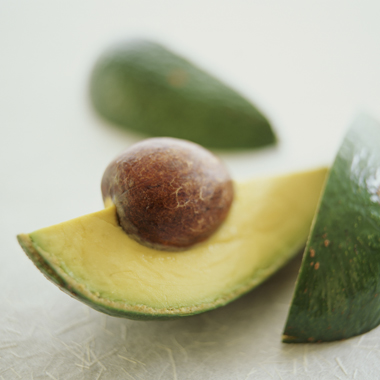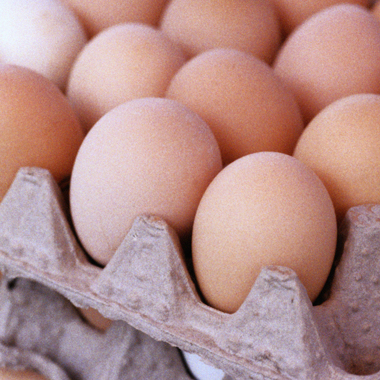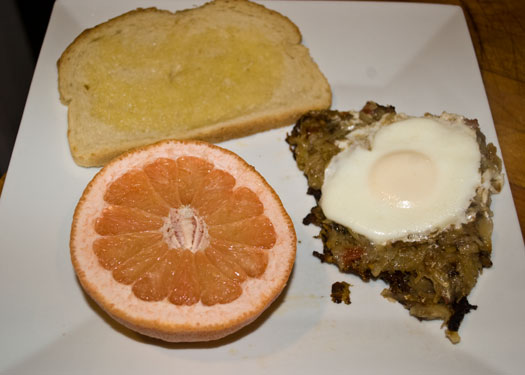This is an article I am copying for your reading pleasure directly from Organic Gardening.com, written by Emily Main. This article is well written and is good advice. It should be passed on to you in its complete unadultrated form. Emily also included some great recipes in the original, so click the link and check it out. These are her pictures too. I’m off to a slow start this year. – jughandle
The 9 Best Foods to Eat in January
Boost your brainpower and ward off a cold—and still stick to your seasonal diet.
By Emily Main
You resolved to eat more healthfully in 2013, so you head to the grocery store to load up on healthy foods—and you’re greeted with sickly looking tomatoes, limp greens, sprouting potatoes, and strawberries that look like the wiser choice would be leaving them suffocating in their plastic clamshells, not actually eating them. Don’t let a lackluster selection of fresh foods keep you from your healthy-eating goals! It is possible to find seasonal, good-for-you produce this time of year, picked at the peak of flavor and filled with nutrients specifically suited to keep you healthy during the long, cold winter.
 Grapefruit
Grapefruit
Good for your nose and your ticker, this fruit usually gets passed up in favor of its more popular relatives (oranges, tangerines, and clementines) or consumed via sugary “juice cocktails” that contain more sugar and food dye than actual grapefruit juice. But its hefty vitamin C content can reduce cold symptoms by 23 percent, studies have found, and a single grapefruit was found in one Israeli study to lower cholesterol. Opt for ruby red varieties, which are sweeter than white and more palatable and reach their height of flavor in early winter.
Beets
These hearty root vegetables store well and will likely pop up at your farmers’ market until summer. Eat them and save your brain. Beets are high in nitrates, naturally occurring minerals that help transport oxygen to your brain. A study from Wake Forest University recently found that older adults with high dietary levels of nitrates (the naturally occurring nitrates found in whole foods, rather than the synthetic versions used in processed meats) showed greater activity in their frontal lobes, suggesting they were better able to ward off dementia, compared to when they were on low-nitrate diets.
 Brussels Sprouts
Brussels Sprouts
They’re full of belly-filling fiber, which will help you stick to those New Year’s resolutions, and you may still be able to find them at your local farmers’ market. Another benefit to Brussels sprouts: They contain high levels of folate, a B vitamin best known for warding off birth defects of the brain and spine when consumed by pregnant women. And surveys suggest there’s a whole lotta baby-making going on in January, which falls nine months before September 16, the most common birthday in the United States, according to Harvard research.
Turkey
Eating a healthier diet means moving beyond the produce aisles. There’s a reason you should include more turkey and poultry in your diet during the winter: The tryptophan in turkey can help ward off the winter blues or its more severe form, seasonal affective disorder, because it gets converted to mood-boosting serotonin in your body. This same amino acid exists in seafood, grass-fed beef, and healthy fats, such as coconut oil and butter from grass-fed cows.
 Cauliflower
Cauliflower
Cauliflower reaches its peak from December through March. It’s one of the few vegetables you’ll find at year-round farmers’ markets in January, depending on the climate of your hometown. Like turkey, this cruciferous vegetable has tryptophan, and some of the highest levels of any vegetable. Use it in place of white potatoes to make a waistline-friendly, low-carb version of mashed potatoes.
 Pumpkin Seeds
Pumpkin Seeds
Pumpkinseeds are rich in magnesium, which helps your body convert tryptophan into serotonin, and they’re basically free, every time you cook a pumpkin, which you may still be able to find locally this time of year.
 Avocados
Avocados
In addition to being rich in tryptophan and magnesium, avocados contain healthy monounsaturated fats, which provide a more sustained form of energy than the quick-burning carbs people tend to crave in winter. Having sustained energy levels will keep your mood elevated, too.
 Eggs (vitamin D)
Eggs (vitamin D)
Eggs, particularly those from pasture-raised hens, are rich in vitamin D, a disease-fighting nutrient that comes primarily from sunlight. Since it’s not always practical to head outside, half-naked, to soak up some D in the winter, load up on eggs, which are also filled with mood-promoting omega-3 fatty acids, zinc, B vitamins, and iodide.
 Yogurt
Yogurt
Yogurt contains a bacterium calledLactobacillus reuteri that has been found to block the replication of viruses that invade your body when you get sick. Not all brands contain that particular strain of beneficial bacteria, so look for a brand that does. We recommend going organic with yogurt from Stonyfield Farm, which does contain L. reuteri.

